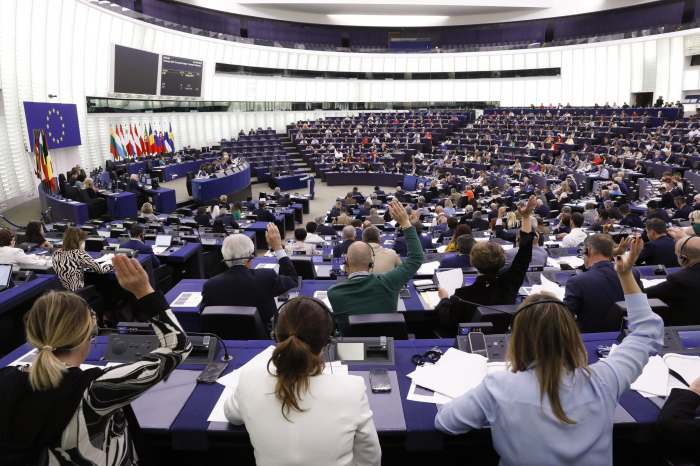The European Parliament approved a draft that allows the bloc's police agency to collect and use personal data, prompting an angry response from privacy activists.
The chamber overwhelmingly approved a proposal that allows Europol to work more closely with non-EU governments and share personal information with private companies.
The European Union said the new regime was needed to help coordinate the fight against terrorism, child sex abuse and other serious crimes.
But activists warned that oversight was too weak and the reforms would turn the police agency into a "data black hole".
"Europol will be allowed to collect and share data left, right, and center without much restriction or control," said Chloe Berthelemy of the NGO European Digital Rights.
The group, along with a coalition of other NGOs, said the reforms created serious risks of violations of the right to a fair trial, privacy and data protection, non-discrimination and freedom of expression.
The European Commission had argued the new powers were needed because terrorists often used private companies to recruit and insisted the reforms would respect fundamental rights.
A European Parliament statement stressed that people would be able "to consult personal data related to them" and oversight would come from a new post of Fundamental Rights Officer and the European Data Protection Supervisor.
The regulation was "a substantial leap forward in the capabilities of the agency", said rapporteur Javier Zarzalejos following the vote, which was carried with 480 MEPs in favor and 143 against.
More about: #EuropeanParliament















































